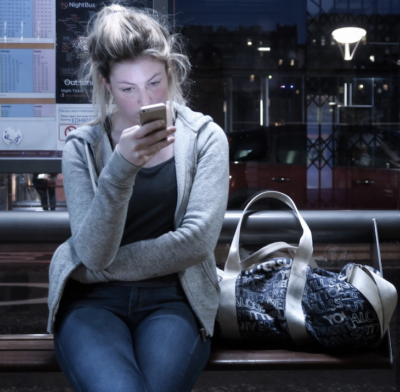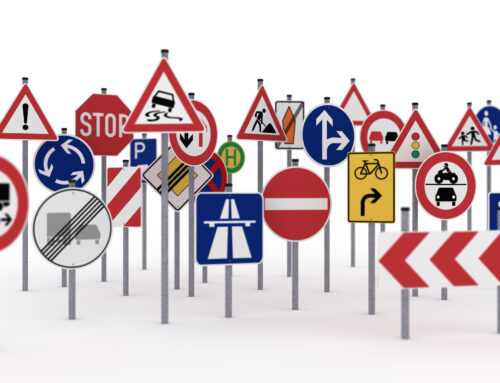Studies show Facebook use is associated with Depression.
Over one billion people log into Facebook every day, being the world’s most popular social networking site. It is logical to assume that people use Facebook because it somehow enhances their lives however research suggests the opposite.
Time on Facebook Can Make You Sad
According to a 2014 study published in Computers in Human Behavior, most people do not seem to be using ‘Social Media’ to be social. Only about 9 percent of people communicate with others. They just observe what others are posting.
The study indicated a severe decline in the moods or participants after scrolling through Facebook. What was interesting was that people did not experience the same emotional decline when they surfed the internet. Meaning decrease on mood was exclusive to Facebook.
It was reported many people felt they had wasted their time scrolling through Facebook and felt unproductive. Further, it was reported they felt worse due to the many happy posts they viewed, and excitement other people seemed to be living compared to their dull life.
Jealousy of Friends Activities on Facebook can Lead to Depression
Apart from feeling sad after leaving Facebook, studies have found resenting your friends’ activities can lead to Depression. Scrolling through joyful updates, exhilarating vacation snaps, and beautiful family moments can lead people to compare their lives with those of their Facebook friends. These comparisons make us feel that our friends on Facebook have a better life, filled with fun, love and happiness.
More than 70% of users check their Facebook daily or multiple time a day. Researchers tell us we continue to check our Facebook page due to Affective forecasting. This is when we predict how you will feel in the future. As it turns out, we’re terrible at it. We are not good judges of what will make us happy, and doing the same thing that makes us feel bad over again, makes us believe next time we will feel better.
We seem to believe a check of Facebook will provide us with a momentary deflection of life, check in with friends or see what friends are posting yet it seems it takes a negative toll on us yet we keep returning for more.
How to Feel Better with Facebook
By being aware that many posts your friends make are presenting only a small part of their life, a part they want to share. They do not post the sad, distressed, emotional, boring parts which we know is the most of any day to day life.
Continually watching others live happy fulfilled lives, displayed in front of us hourly or daily, can impact on our life and make us feel less connected, less happy, less fulfilled and certainly missing out on what so many others seem to be doing. Our brains fill in the blanks from snippets of someone’s life they post, based on their presented story. We become so caught up in our ordinariness or what’s lacking in our life; it’s hard not to feel bad about yourself, feel sad or depressed.
Personality studies have also found many Narcissistic personality individuals continue to post exciting information, bragging to the world news about every aspect of their amazing life. They need to be noticed and hold a high regard for their own importance in others’ lives, even if it is a distant Wow, they receive.
With the ability now to enhance and create so many ‘activities and events’ that look incredible and amazing, do we really know what is truth and what is fabricated? We tend to believe posts as being real and truthful when the correct assumption is much of it is fabricated. The problem is, we often do not know.
Harvard Business Review concluded recently the more you use Facebook, the worse you will feel. Facebook users who took a week-long break were found to be more pleased with life and rated their own well-being as improved.
The University of Copenhagen experiment involved 1,095 people, half of whom were asked to continue their Facebook habits and half ordered to abstain from logging on. A study has also found the more you spend on Facebook, the more likely you are to become depressed.
Researchers at the University of California, San Diego, and the Human Nature Lab at Yale University stated: “We found consistently that both liking others’ content and clicking links significantly predicted a subsequent reduction in self-reported physical health, mental health, and life satisfaction.”
Newsfeeds are more biased towards showing all the enjoyable, interesting things that people are doing. They do not show or represent the normal or mundane parts of life. It is human nature to compare ourselves to others problem being, the comparison we use. It isn’t real life. The nature and quality of Facebook Friends connection are no substitute for the real world interaction we need for a healthy satisfying life.
How to Improve the Way Your Feel
- Limit your daily scrolling
- Avoid scanning Facebook an hour before bed
- Stop allowing your Facebook ‘check-in’ to rule your life and take you away from personal or family interactions
- Do not make social comparisons; this is like comparing your real life to that of a television character, it is not all real
- You don’t need to post all the time, in fact, most of us only stalk, watch or follow
- Limit your Facebook time, live your life, enjoy new activities, get out and associate with real people
- If your life isn’t what you want, you are in charge of changing that
A recent US study sponsored by the National Institute for Mental Health identified a “strong and significant association between social media use and depression”. The study found that levels of depression increased with the total amount of time spent using social media and the number of visits to social media sites each week.
Be aware; make the necessary changes for your life to move forward happier, more in control and with those right interactions human contact can have.
Read more from Dr Karen
References:
Copenhagen University: http://www.independent.co.uk/life-style/gadgets-and-tech/facebook-social-media-make-unhappy-jealous-people-particularly-sad-copenhagen-university-study-a7490816.html
Current Opinion in Psychology, 2016, http://www.sciencedirect.com/science/article/pii/S2352250X15002535; http://www.sciencedirect.com/science/article/pii/S0191886915003025
Harvard Business Review: https://hbr.org/2017/04/a-new-more-rigorous-study-confirms-the-more-you-use-facebook-the-worse-you-feel
Psychology Today: https://www.psychologytoday.com/blog/what-mentally-strong-people-dont-do/201603/science-explains-how-facebook-makes-you-sad






